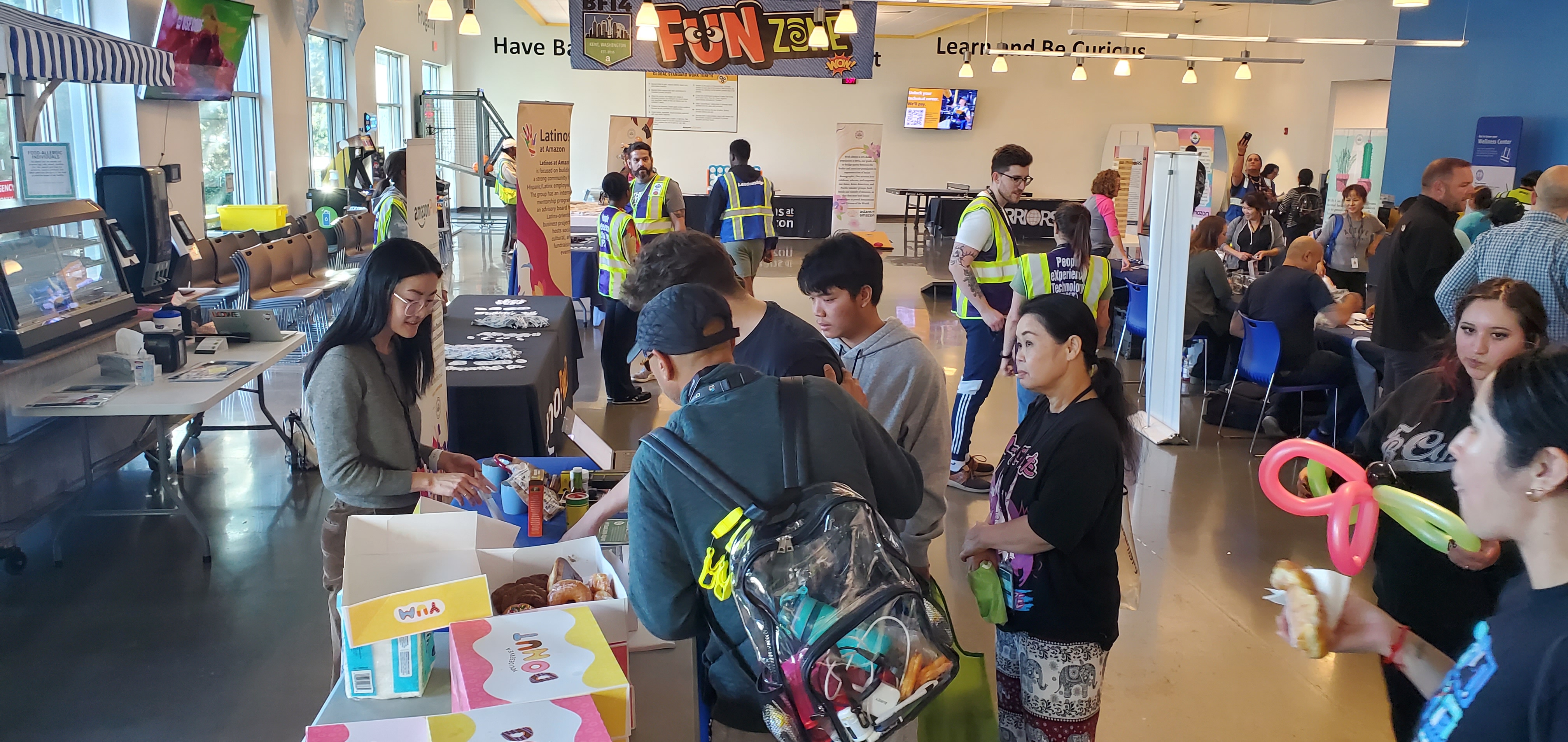Commute Trip Reduction
The Commute Trip Reduction (CTR) law was passed by Washington Legislature in 1991 as part of the Washington Clean Air Act. The law aims to reduce greenhouse gas emissions and air pollutants, traffic congestion, and energy consumption. CTR, which is a strategy of transportation demand management (TDM), requires employers to encourage their employees to reduce the number of drive-alone commute trips by promoting alternate ways of getting to work.
Local jurisdictions across Washington state, including the City of Kent, work with large employers to participate in the CTR program. As the CTR Coordinator for Kent, I share resources with employers around commuter benefits and encourage alternative modes through programs offered by King County Metro. I also collect data on the progress of the program through employee surveys and program reports. For the first time in Kent’s CTR history, I have been able to implement tabling at worksites for the surveys and to provide incentives for participants. These efforts have helped build the City’s relationship with local businesses and organizations.
Apart from the program, the CTR 4-Year Plan is another requirement for local jurisdictions. For Kent’s 2025-2029 CTR 4-Year Plan, my team and I coordinated public outreach for the plan and I also gave a presentation to our City Council. I collaborated with neighboring cities in South King County to discuss and ensure the alignment of our local plans. As a city that has not had a CTR plan since 2007, neighboring cities now look to us as a regional leader.
The draft plan was approved by WSDOT TDM Technical Committee February 2025. The CTR plan was adopted by City Council in June 2025.
Click here to view the engagement website and a draft of the CTR 4-Year plan.
The Commute Trip Reduction (CTR) law was passed by Washington Legislature in 1991 as part of the Washington Clean Air Act. The law aims to reduce greenhouse gas emissions and air pollutants, traffic congestion, and energy consumption. CTR, which is a strategy of transportation demand management (TDM), requires employers to encourage their employees to reduce the number of drive-alone commute trips by promoting alternate ways of getting to work.
Local jurisdictions across Washington state, including the City of Kent, work with large employers to participate in the CTR program. As the CTR Coordinator for Kent, I share resources with employers around commuter benefits and encourage alternative modes through programs offered by King County Metro. I also collect data on the progress of the program through employee surveys and program reports. For the first time in Kent’s CTR history, I have been able to implement tabling at worksites for the surveys and to provide incentives for participants. These efforts have helped build the City’s relationship with local businesses and organizations.
Apart from the program, the CTR 4-Year Plan is another requirement for local jurisdictions. For Kent’s 2025-2029 CTR 4-Year Plan, my team and I coordinated public outreach for the plan and I also gave a presentation to our City Council. I collaborated with neighboring cities in South King County to discuss and ensure the alignment of our local plans. As a city that has not had a CTR plan since 2007, neighboring cities now look to us as a regional leader.
The draft plan was approved by WSDOT TDM Technical Committee February 2025. The CTR plan was adopted by City Council in June 2025.
Click here to view the engagement website and a draft of the CTR 4-Year plan.

 Tabling for the CTR employee survey at an Amazon fullfilment center
Tabling for the CTR employee survey at an Amazon fullfilment center Partnered with a planner from Tukwila to table for SKC Trips and CTR 4-Year Plan at Kent YMCA’s Community Day
Partnered with a planner from Tukwila to table for SKC Trips and CTR 4-Year Plan at Kent YMCA’s Community Day